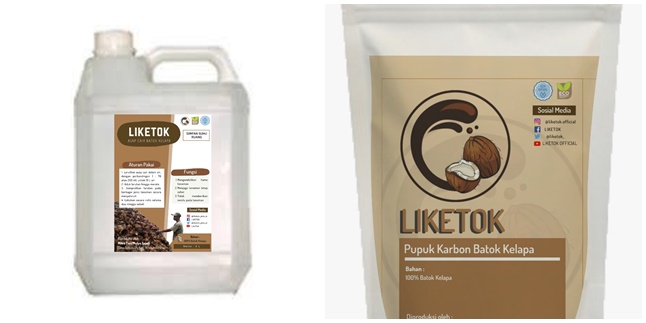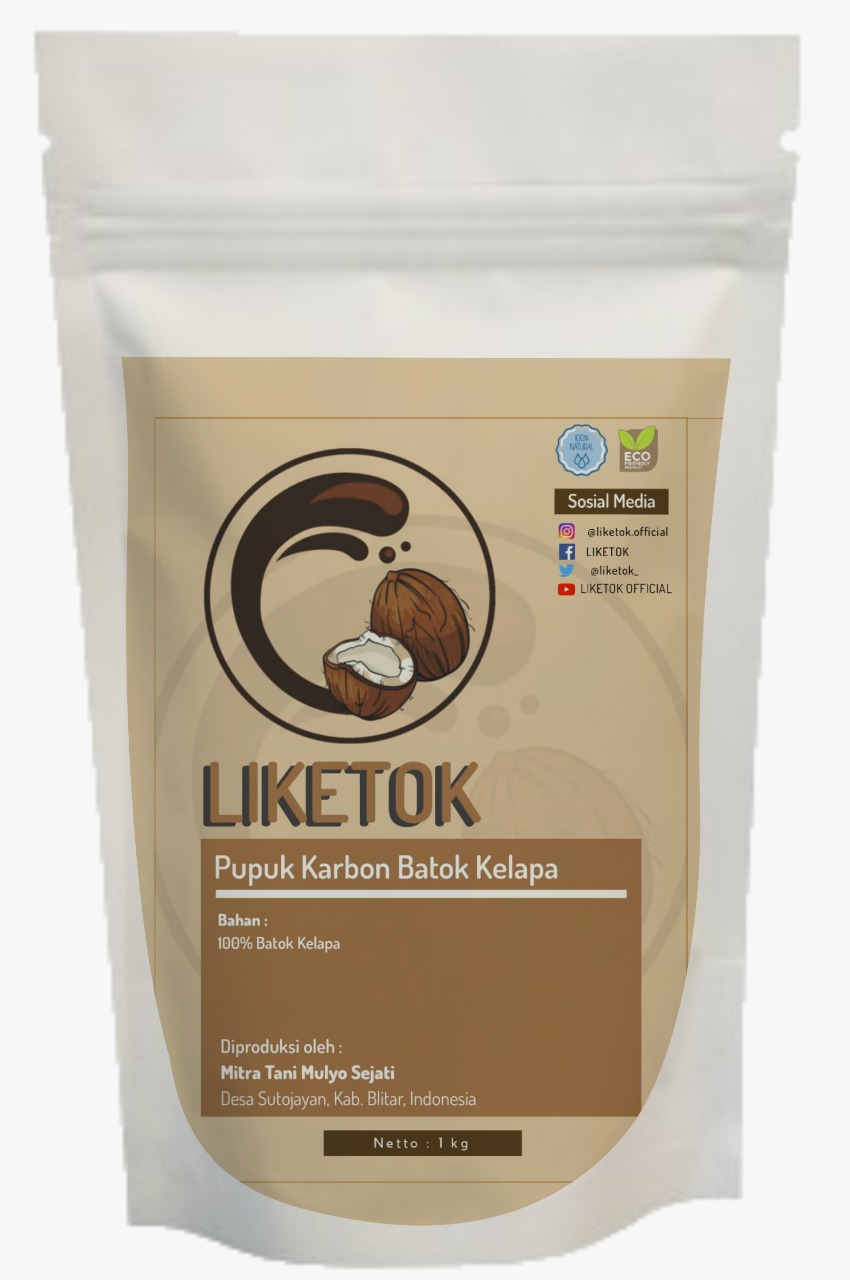Buy Goat Served by Beautiful Sales Promotion Girls (SPG), This Sacrificial Animal Seller Offers a Unique Concept
Unique goat names and beautiful Sales Promotion Girls (SPG) become the attraction of sacrificial animal sales in Malang City.

Kapanlagi.com - Students from the Faculty of Agricultural Technology (FTP) at Brawijaya University (UB) in Malang are utilizing coconut shells as pesticides. Coconut shells, which are considered waste, are processed into the main ingredient for plant pest control labeled LIKE-TOK.
"Coconut shells contain lignin, cellulose, hemicellulose, and carbon sources, which can be used as raw materials for the production of liquid smoke," said Wakhidatul Fitriyah, Head of the LIKE-TOK Team, on Saturday (19/9).
These substances are effective in repelling pests such as rats, caterpillars, birds, and insects that disrupt plant growth. Therefore, farmers need them to protect their crops from pests.

Kapanlagi/Darmadi Sasongko
Wakhidatul admitted to have applied training in Sutojayan Village, Blitar Regency, which has abundant coconut shell waste. Together with her friends, Maulana A'inul Yaqin, Bakti Pertiwi Purnama Sari, Yohana Christine Tiurma Manurung, and Muhammad Usman Sihab, they developed training for handling organic waste, especially coconut shells in the village.
"The process is carried out with a pyrolysis tool. With this tool, the coconut shell will undergo combustion process at a temperature of approximately 400 degrees Celsius for 3-6 hours. After the combustion process, steam distillation will occur, followed by condensation process to form liquid smoke. This liquid smoke will be used as a pesticide," said Wahidatul.
Sutojayan Village itself, as a coconut-producing area, produces 15 tons of coconut shell waste per year. Some of the community utilize it for handicrafts, fuel, and the rest is discarded.
The training program, named LIKE-TOK, is also packaged online, providing assistance in the production of liquid smoke and by-products in the form of briquettes. This way, coconut shell waste is utilized and has value, even economically.
"Through this program, coconut shell waste can be reduced by 98.8% every month," said the 2017 student.
In addition to reducing environmental pollution, the community can also benefit economically from coconut shells. Currently, the income from the sale of liquid smoke pesticide and carbon fertilizer is Rp 5,519,900 per month.
Currently, temporary sales still utilize networks and online sales are being developed.
(kpl/dar/frs)
Cobain For You Page (FYP) Yang kamu suka ada di sini,
lihat isinya
Unique goat names and beautiful Sales Promotion Girls (SPG) become the attraction of sacrificial animal sales in Malang City.
Want to be rich like them? Work hard!
A girl who is also an artist and student from Iceland has attracted attention after she created various unique and strange masks in the shape of protruding tongues. Her creations even made it into Vogue Magazine, a world-renowned fashion magazine.
One of the efforts to break the chain of the corona covid-19 is self-quarantine at home. However, there is something interesting, during the period of self-quarantine, many creative and boredom-breaking challenge hits have emerged at home. Have you tried it yet?
The story told by Nor Sahira on Facebook suddenly went viral.
Work from home (WFH) has become a new system recommended by the government for workers to prevent the spread of the corona covid-19 virus. There are many unique incidents that happen during WFH that are unforgettable.
Some time ago, the online world was stirred by the emergence of the Agung Sejagat Kingdom located in Central Java. After being investigated by the police, the place has now become crowded with visitors. What do the photos look like?
It has been several days since senior actress Ria Irawan passed away. Her husband, Mayky Wongkar, has just held a 7-day event to remember and pray for the deceased.
It's so terrifying that this hospital was made into a horror film in 2018.
Check out these 7 weirdest deaths, and start praying that you don't experience them too.
A video of a Javanese bride dancing zumba during the wedding reception has been widely discussed by netizens lately. Who is this bride?
A series of terrifying moments captured by the camera lens. The stories behind these photos are truly heartbreaking and sad.